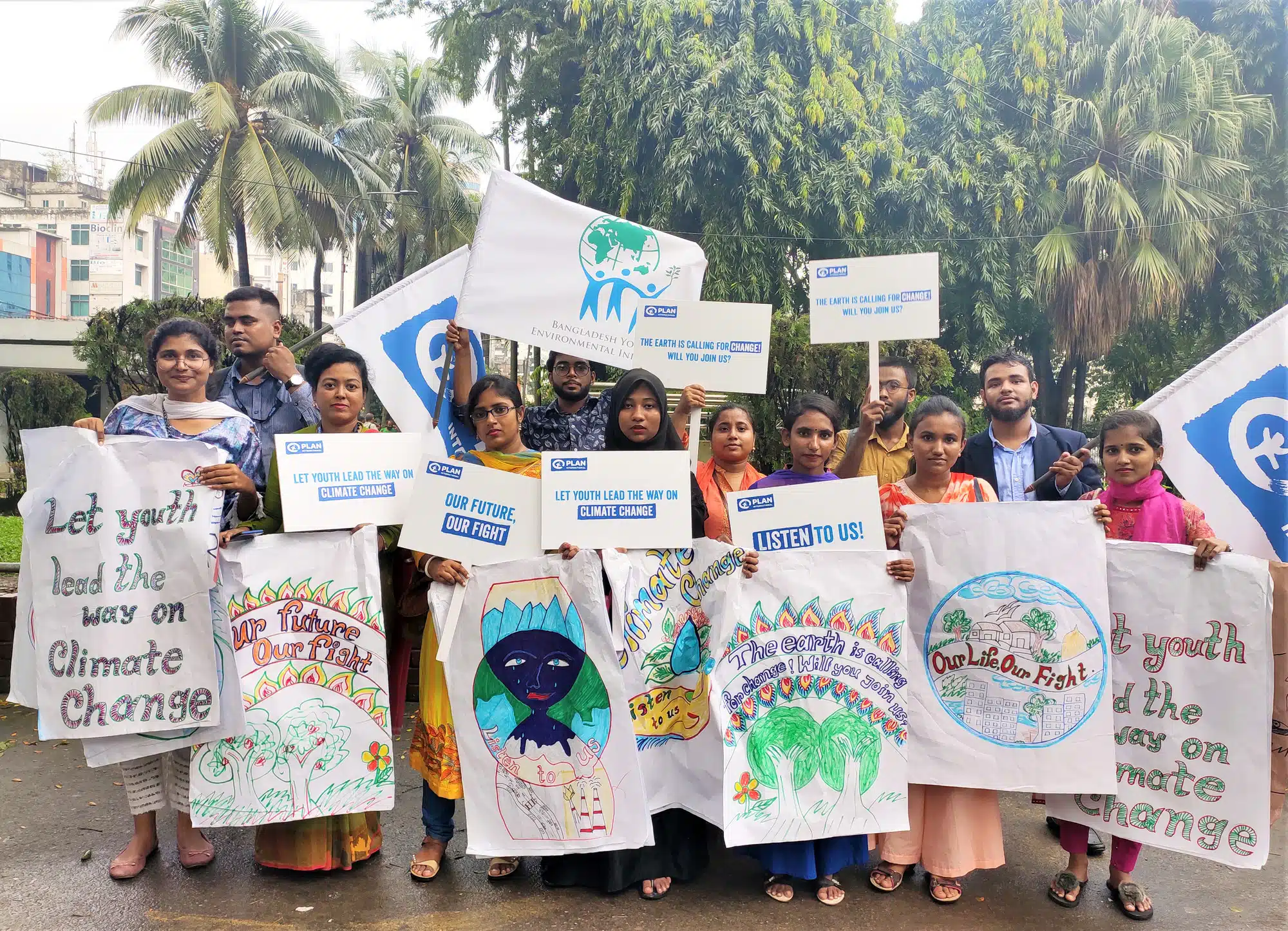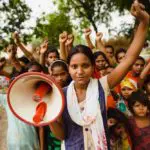Media Centre - Media release - 9 November 2022
Climate-induced loss and damage is the greatest threat young people face today – the Australian Government must stand with them at COP27, says Plan International

As world leaders, climate experts and environmentalists meet in Egypt this week for the COP27 climate change conference, young people across the globe have come together to demand greater action on loss and damage, naming this the greatest intergenerational justice youth face today.
With loss and damage poised to be a critical issue at COP27, Plan International Australia is calling on the Australian Government to commit to loss and damage finance to address irreversible and life-changing impacts of climate change that cannot be avoided through mitigation or adaptation.
From the Frontlines: Youth Call for Action to Address Loss and Damage Caused by Climate Change, a new report by Plan International, was written and researched by young people, including lead author Ineza Umuhoza Grace, a 25-year-old feminist and climate advocate from the Loss and Damage Youth Coalition in Kigalia, Rwanda.
The report found that between 1990 and 2015, the richest 1% of the world’s population were responsible for more than twice as much carbon pollution as the poorest 50%. Yet, it is the children and grandchildren of the poorest 3.1 billion people in low-income nations who will pay the ongoing and escalating price.
“This year we have witnessed extreme flooding in Bangladesh, China, Pakistan, and South Africa and Australia; heatwaves in South Asia, United States, and Europe; and drought and food crisis in Western and Eastern Africa. Passing on the escalating impacts of human induced climate change to future generations is a moral and leadership failure. The duty to act could not be more urgent. The rights and wellbeing of youth today, future generations and the planet are at stake.
“Climate justice will be achieved only if we address loss and damage critically and systematically,” said Ms Grace. “Otherwise, we are going to lose our planet and communities. Let us act now together in solidarity for today’s children and youth and for future generations.”
It is critical that high polluting countries like Australia support young people in low-income countries, particularly in the Pacific, to recover and rebuild in the aftermath of climate disasters.
“As a nation that has greatly contributed to climate change and one that has an access to an abundance of resources and wealth, it is our duty to help young people from all across the globe,” said Sydney-based youth advocate Janice Rodrigues, who was a delegate at the Asia-Pacific Ministerial Conference on Disaster Risk Reduction conference in Brisbane in September.
“Loss and damage from climate change is not a future problem — it is happening right now. The climate crisis is causing severe damage and irreversible loss to people and the planet.” she said.
“Young people with lived experience of disaster, especially those in the Pacific, have been at the forefront of community initiatives and work to reduce the aftermath of disasters.”
Irfan Ullah, a young person living through the devastating impacts of the climate crisis and youth advocate and report author from Pakistan added, “the recent flooding has wreaked havoc across Pakistan, and one-third of the country is underwater. The historic monsoon rains charged through villages, crop fields and thousands of homes, ripping apart lives and displacing 33 million people. Pakistan’s contribution to greenhouse gas emissions is less than 1% but it is among the top 10 most vulnerable countries to climate change. It is time to make the polluters accountable for the loss and damage they are causing in developing countries and to move from solidarity to responsibility.”
“The report amplifies a perspective often ignored at COP, that of the next generations. Today’s youth generation is the largest in history, which is why global leaders must ensure political decisions on finance for loss and damage are made through an intergenerational and gender equality lens at COP27,” Ms Rodrigues added.
“By supporting young people on the frontlines and assisting with combatting the losses experienced from climate change, we can learn from those whose experience and knowledge of climate change are integral in a future where the frequency and intensity of climate induced disasters are unavoidable. Continuing to ignore loss and damage financing is pushing us closer to the apocalyptic realities that should remain at the movies,” she concluded.
What is climate-induced loss and damage?
Extreme weather events including floods, storms, droughts, heatwaves, and wildfires are becoming more frequent and severe every year, leading to loss of life, land, coastlines, livelihoods, crops, ecosystems, biodiversity, and infrastructure. Climate-induced loss includes things that are lost and can’t be brought back: for example, loss of life, biodiversity, cultural heritage and Indigenous knowledge. Climate induced damage are things that can be either restored or repaired: for example, houses, schools, hospitals, roads and bridges.
The impacts of loss and damage are experienced in young people and children’s everyday lives as growing inequality, hunger, lack of access to education and health services, threats to livelihoods, risks of gender-based violence, child, early and forced marriage, and loss of loved ones.
While the human costs of loss and damage for today’s children and young people and future generations are incalculable, the estimated economic cost is staggering. By 2030, the financial cost of loss and damage for developing countries is estimated at between US$290-580 billion annually and, by 2050 is estimated to reach to US$1-1.8 trillion annually.
“The climate crisis is no longer simply an environmental crisis, but a human rights and survival issue. Discriminatory social and gender norms mean that girls and women, in all their diversity, are often the hardest hit by climate change and have the fewest resources to bounce back. The climate crisis will only deepen these inequalities, rolling back progress towards equality and justice,” said Plan International Australia CEO Susanne Legena.
“The climate crisis is not gender neutral, impacting girls first and worst, particularly those in low-income countries where communities are experiencing the most severe impacts of the climate crisis daily.
“We are witnessing this in real time right now, as hundreds of millions of people are on the brink of starvation in the Horn of Africa, which has been crushed by year after year of drought. Families in South Sudan are making heart-wrenching decisions to marry off their too-young daughters just to put food on the table. Girls are being pulled out of school early, and most will not return. Women and girls in Somalia are walking for hours and hours each day to collect water. And yet, these people have contributed the least to emissions. World leaders and power holders need to step up and support the most climate-affected countries,” said Ms Legena.
Media contacts


